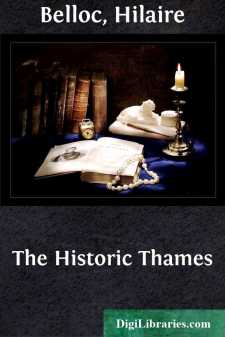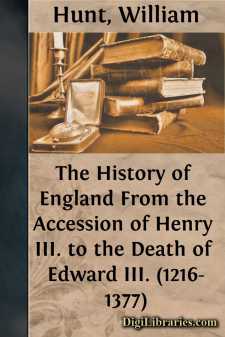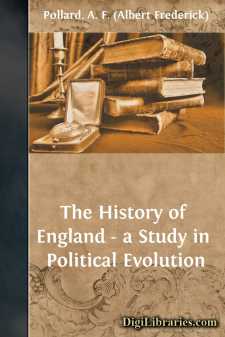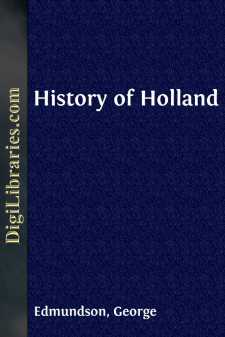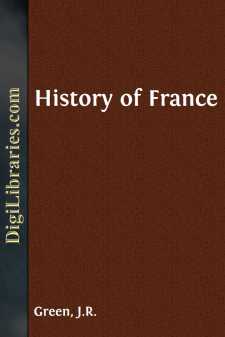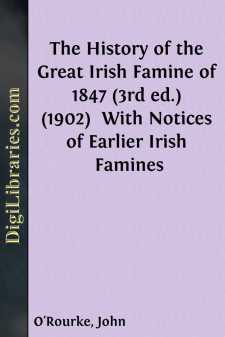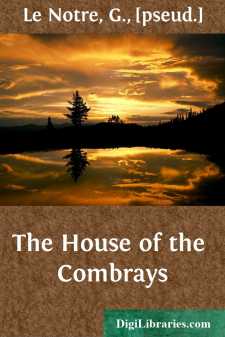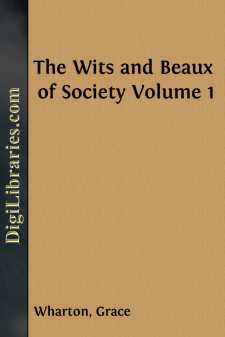History
- Africa 30
- Americas (North Central South West Indies) 50
- Ancient 68
- Asia 58
- Australia & New Zealand 8
- Canada 41
- Caribbean & West Indies 1
- Civilization 20
- Eastern Europe 12
- Europe
- Expeditions & Discoveries 60
- General 77
- Historical Geography 1
- Jewish 9
- Latin America 3
- Medieval 8
- Middle East 13
- Military 248
- Revolutionary 8
- Study & Teaching 5
- United States 353
- Western Europe 56
- World 13
Europe Books
Sort by:
by:
Hilaire Belloc
THE HISTORIC THAMES England has been built up upon the framework of her rivers, and, in that pattern, the principal line has been the line of the Thames. Partly because it was the main highway of Southern England, partly because it looked eastward towards the Continent from which the national life has been drawn, partly because it was better served by the tide than any other channel, but mainly because...
more...
by:
William Hunt
CHAPTER I. THE REGENCY OF WILLIAM MARSHAL. When John died, on October 19, 1216, the issue of the war between him and the barons was still doubtful. The arrival of Louis of France, eldest son of King Philip Augustus, had enabled the barons to win back much of the ground lost after John's early triumphs had forced them to call in the foreigner. Beyond the Humber the sturdy north-country barons, who...
more...
CHAPTER I THE FOUNDATIONS OF ENGLAND 55 B.C.—A.D. 1066 "Ah, well," an American visitor is said to have soliloquized on the site of the battle of Hastings, "it is but a little island, and it has often been conquered." We have in these few pages to trace the evolution of a great empire, which has often conquered others, out of the little island which was often conquered itself. The mere...
more...
by:
George Edmundson
CHAPTER I [pg.1] THE BURGUNDIAN NETHERLANDS The last duke of the ancient Capetian house of Burgundy dying in 1361 without heirs male, the duchy fell into the possession of the French crown, and was by King John II bestowed upon his youngest son, Philip the Hardy, Duke of Touraine, as a reward, it is said, for the valour he displayed in the battle of Poictiers. The county of Burgundy, generally known as...
more...
by:
J.R. Green
CHAPTER I. THE EARLIER KINGS OF FRANCE. 1. France.—The country we now know as France is the tract of land shut in by the British Channel, the Bay of Biscay, the Pyrenees, the Mediterranean, and the Alps. But this country only gained the name of France by degrees. In the earliest days of which we have any account, it was peopled by the Celts, and it was known to the Romans as part of a larger country...
more...
I. I now undertake to write the history of a small party of men who, cast by Providence into the very centre of the greatest drama of modern times, comprise in themselves the ideas, the passions, the faults, the virtues of their epoch, and whose life and political acts forming, as we may say, the nucleus of the French Revolution, perished by the same blow which crushed the destinies of their country....
more...
by:
John O'Rourke
The great Irish Famine, which reached its height in 1847, was, in many of its features, the most striking and most deplorable known to history. The deaths resulting from it, and the emigration which it caused, were so vast, that, at one time, it seemed as if America and the grave were about to absorb the whole population of this country between them. The cause of the calamity was almost as wonderful as...
more...
by:
G. Le Notre
CHAPTER I THE TREACHERY OF JEAN-PIERRE QUERELLE Late at night on January the 25th, 1804, the First Consul, who, as it often happened, had arisen in order to work till daylight, was looking over the latest police reports that had been placed on his desk. His death was talked of everywhere. It had already been announced positively in London, Germany and Holland. "To assassinate Bonaparte" was a...
more...
by:
Grace Wharton
GEORGE VILLIERS, SECOND DUKE OF BUCKINGHAM. Signs of the Restoration.—Samuel Pepys in his Glory.—A Royal Company.—Pepys 'ready to Weep.'—The Playmate of Charles II.—George Villiers's Inheritance.—Two Gallant Young Noblemen.—The Brave Francis Villiers.—After the Battle of Worcester.—Disguising the King.—Villiers in Hiding.—He appears as a...
more...
by:
Grace Wharton
HORACE WALPOLE.The Commoners of England.—Horace's Regret for the Death of his Mother.— 'Little Horace' in Arlington Street.—Introduced to George I.— Characteristic Anecdote of George I.—Walpole's Education.—Schoolboy Days.—Boyish Friendships.—Companionship of Gray.—A Dreary Doom.— Walpole's Description of Youthful Delights.—Anecdote of Pope and Frederic of...
more...


